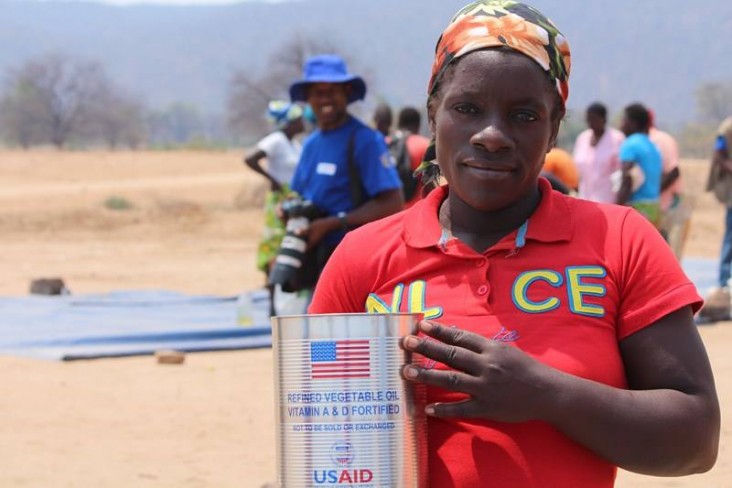
For Immediate Release
Harare, 4 August, 2016 –The United States Agency for International Development (USAID) is providing $127 million in new humanitarian assistance for Southern Africa in response to the drought affecting the region. Zimbabwe will receive $54.5 million, representing 42.5 per cent, of the new funding. The remainder will be distributed to Malawi, Mozambique, Madagascar, Lesotho, and Swaziland. This new humanitarian funding to Southern Africa is consistent with the Southern Africa Development Community (SADC)'s regional appeal launched by President Khama in Botswana on July 26.
This new contribution of $54.5 million brings the total U.S. Government funding for drought relief in Zimbabwe to over $100 million since June 2015. “The United States remains committed to supporting the people of Zimbabwe during these difficult times,” said USAID/ Zimbabwe Acting Mission Director Tom Ray. “With these resources, we strive to meet immediate needs, reduce suffering, and ensure families are able to cope with the negative effects of the drought.” The food security situation in Zimbabwe remains dire due to the El Niño-induced drought. The Zimbabwe Vulnerability Assessment Committee estimates that 2.2 million people are currently food insecure and this figure will rise to 4.1 million (42 percent of the rural population) during the period from January to March 2017.
The additional funding for Zimbabwe will help meet growing needs by expanding food assistance now and during the upcoming lean season, and by providing nutrition and health support, access to safe drinking water, and seeds and livestock support to promote agricultural recovery. USAID is channeling all food aid through partner organizations and both USAID and its partners are rigorously monitoring the process during targeting, distribution, and post-distribution to ensure it reaches and benefits only the most vulnerable.
In addition to providing humanitarian assistance, the United States is continuing to adapt significant and ongoing development investments to mitigate impacts of El Niño. These include support to activities that increase household incomes, facilitating linkages between farmers and markets, improving access to credit, and building resilience to climatic shocks and stresses in Zimbabwe. USAID, with funding support from the President’s Emergency Plan for AIDS Relief (PEPFAR), is also providing support to over 360,000 orphans and vulnerable children (OVC) enabling them to receive comprehensive package of services that include economic strengthening, education, health, and social protection. This helps build their resilience and mitigate the impact of HIV and AIDS.
The United States has put in place an integrated response to El Niño globally that includes mobilizing about $1 billion in emergency assistance, activating emergency resources in resilience programs, and adjusting development efforts to accelerate recovery.
# # #
For more than 30 years, the American people, through USAID, have contributed over $2.6 billion in assistance to Zimbabwe. Current projects include initiatives to increase food security, support economic resilience, improve health systems and services, and promote a more democratic system of governance.
For additional information, please contact Deputy Public Affairs Officer Nicole Finnemann at HararePAS@state.gov or Development Outreach and Communications Specialist, Doreen Hove at dhove@usaid.gov.







Comment
Make a general inquiry or suggest an improvement.